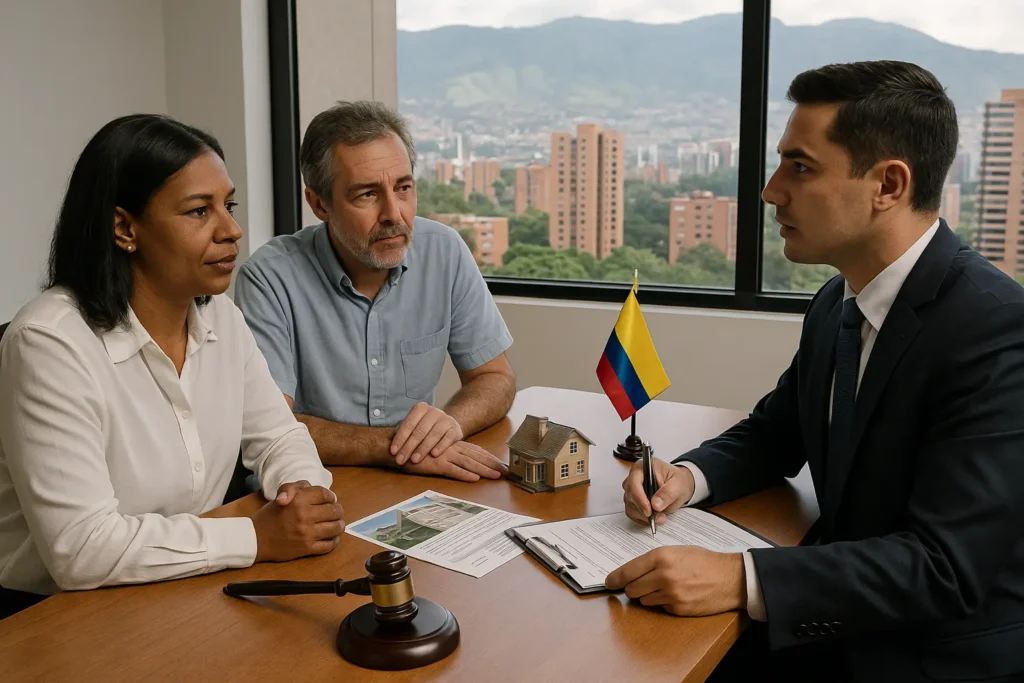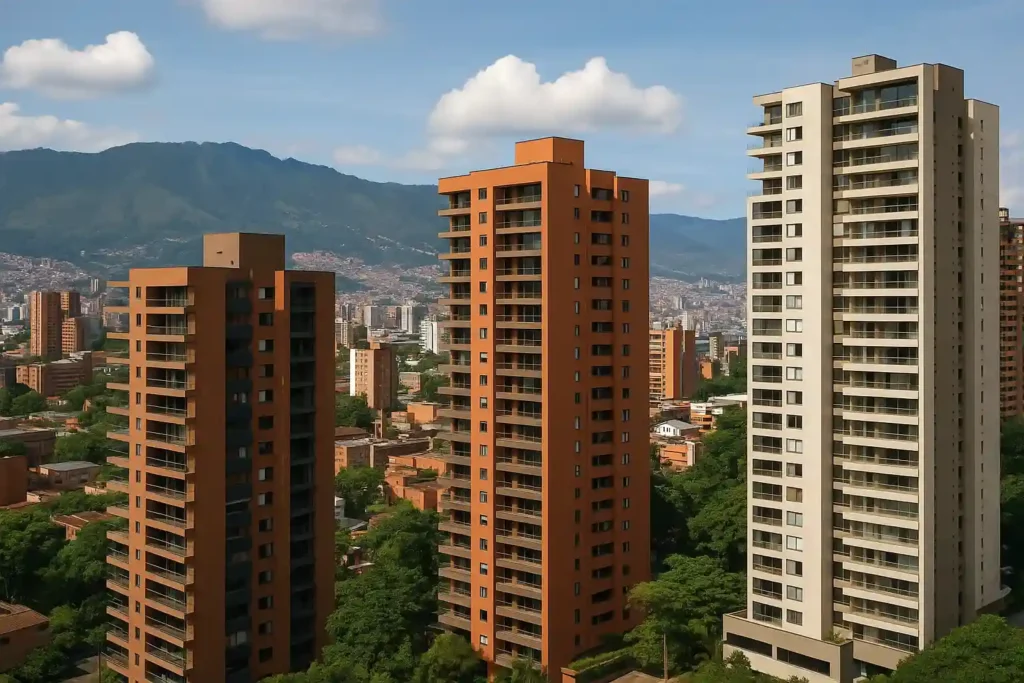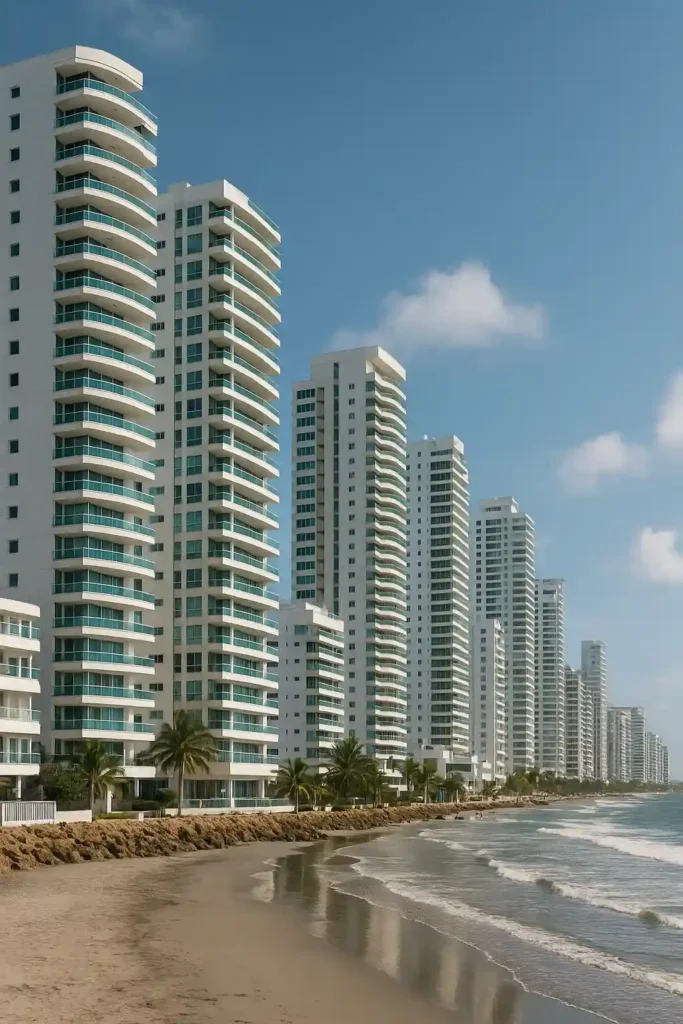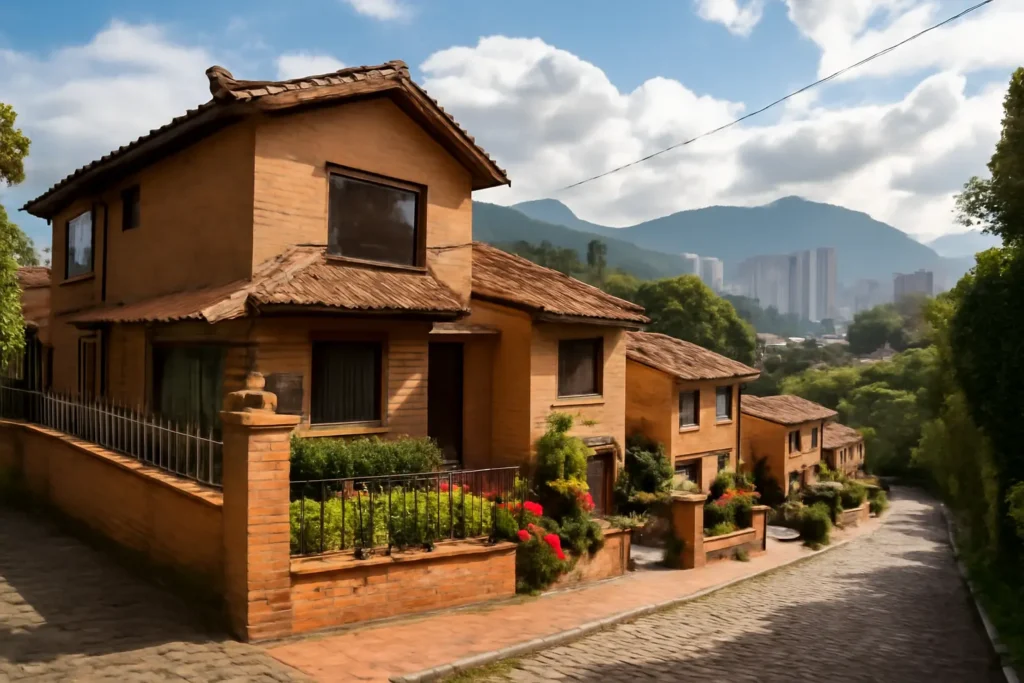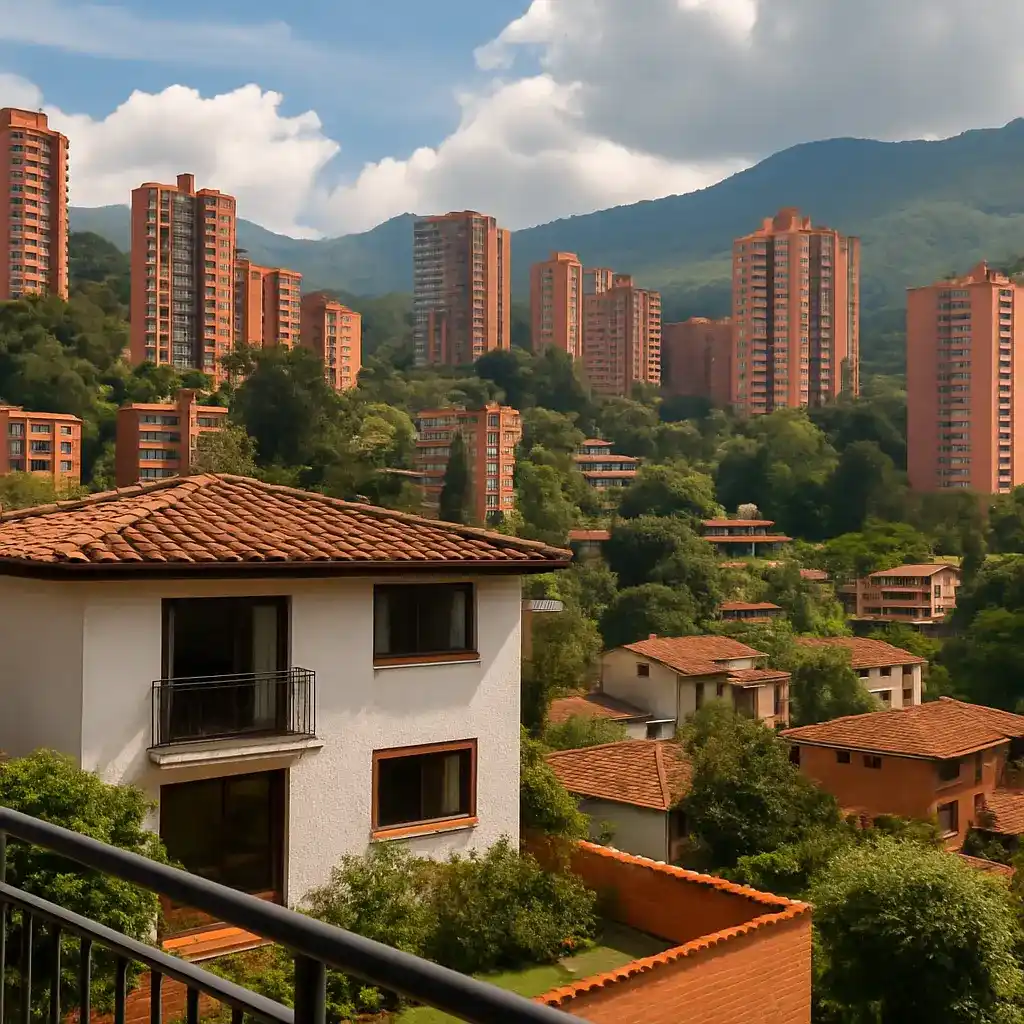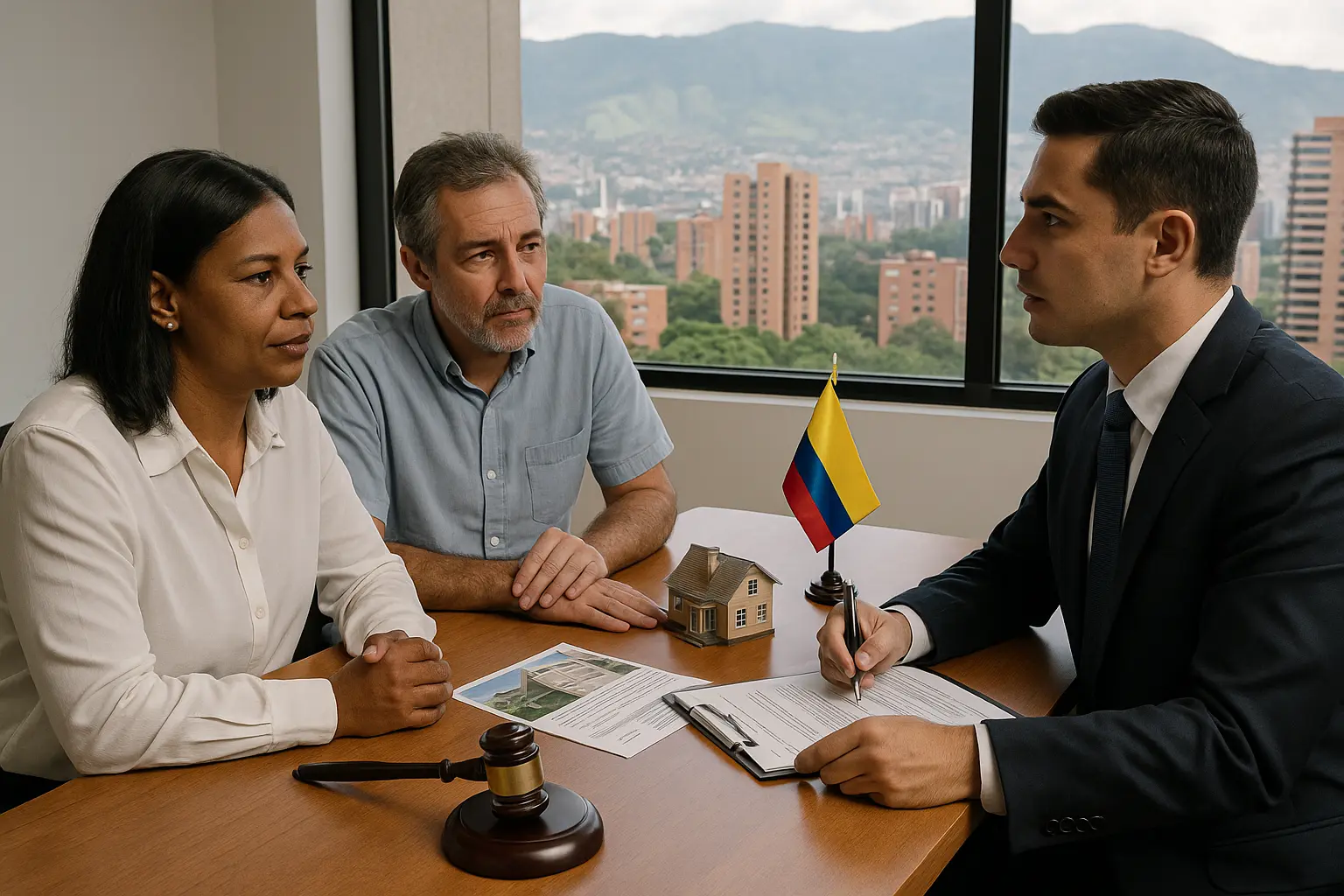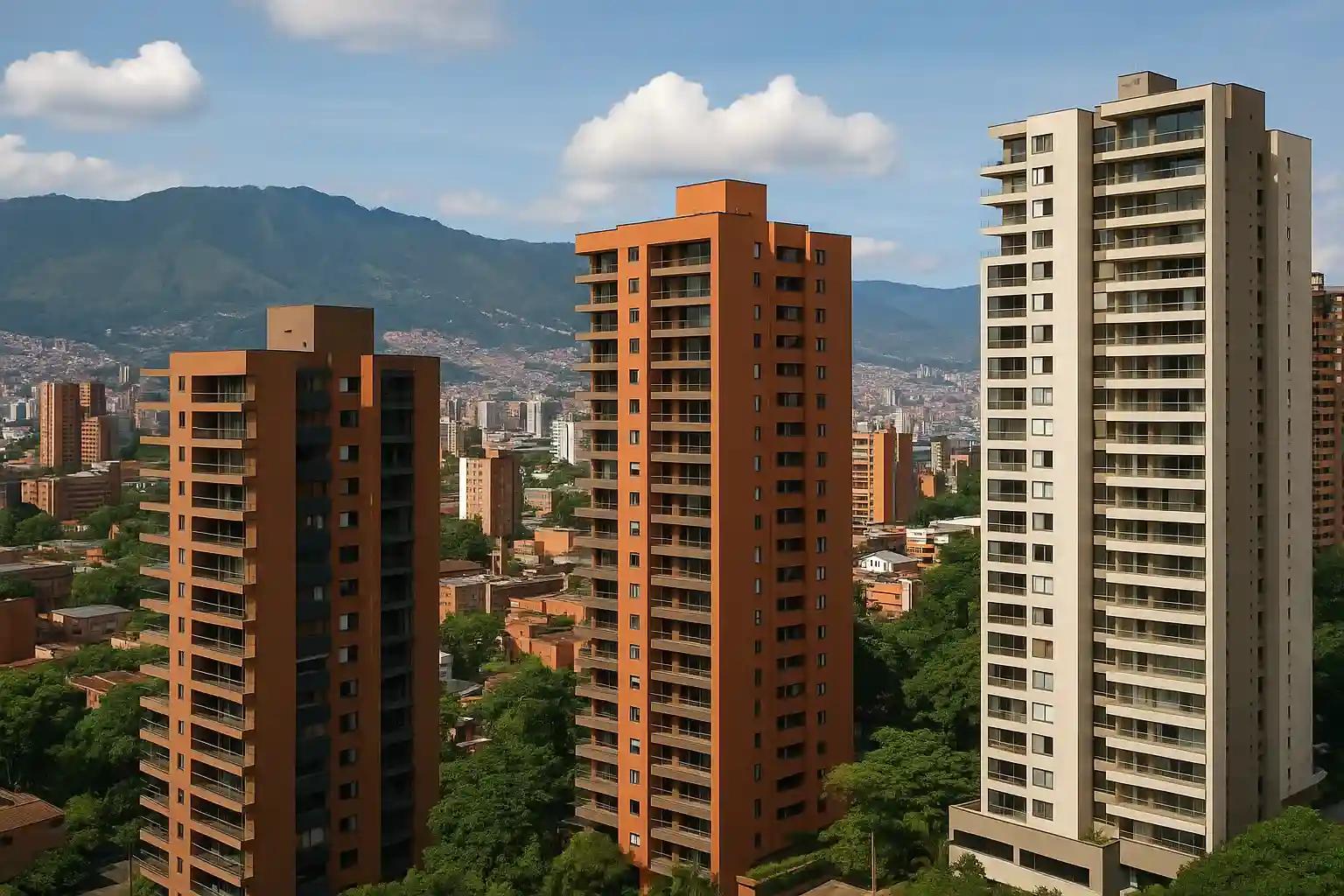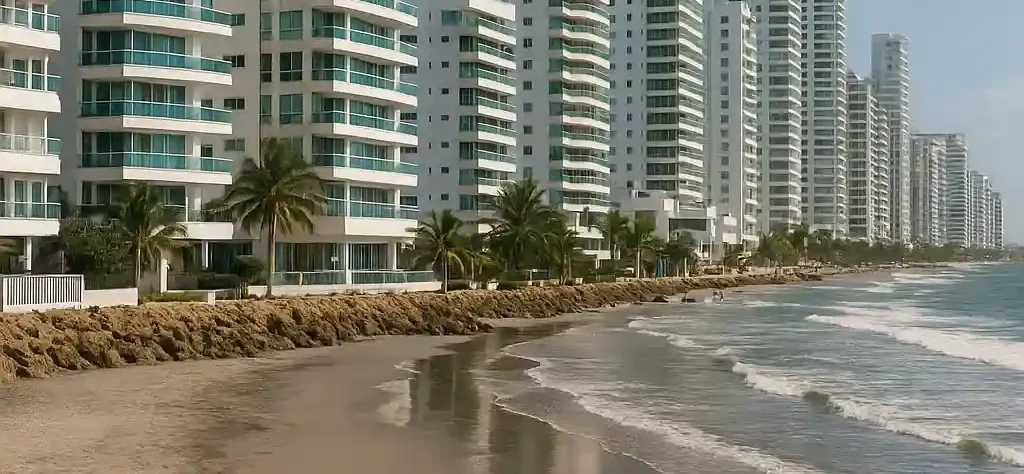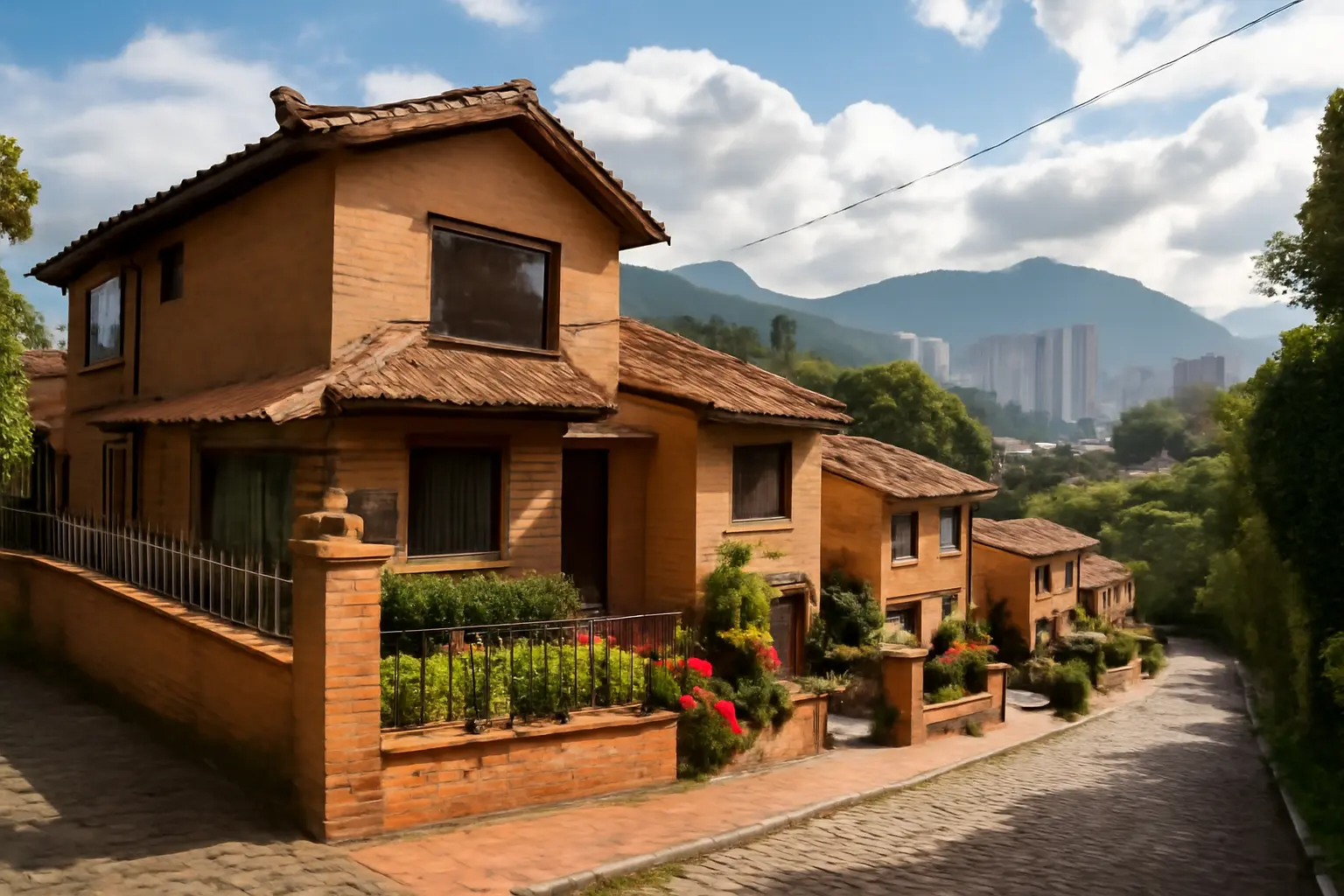Buying land in Colombia has become one of the most attractive opportunities for foreign investors looking to expand their real estate portfolios in Latin America. The country offers a unique mix of economic growth, affordability, and natural beauty, ranging from coastal plots to mountain estates and farmland. However, the process involves specific legal procedures that differ from those in other countries.
In this guide, we explore everything you need to know about buying land in Colombia, focusing on title searches, rural limits, and zoning laws. Understanding these aspects is essential to avoid legal setbacks and protect your investment.
What Is a Title Search and Why It Matters
A title search is a detailed review of public records to confirm a property’s legal ownership and detect any existing liens, debts, or legal disputes attached to it. In Colombia, this step is indispensable when buying land, as it verifies that the property is free of encumbrances and that the seller has the full legal right to transfer ownership.
Without a proper title search, buyers risk inheriting unpaid taxes, unresolved inheritance claims, or pending lawsuits linked to the land.To understand this process in depth, visit our detailed guide on Property Title Search in Colombia.
How a Title Search Works in Colombia
When buying land in Colombia, conducting a proper title search is a vital step to verify that the property’s ownership and legal status are legitimate. The process involves several stages that ensure transparency and legal security throughout the transaction:
| Step | Description | Purpose |
|---|---|---|
| 1. Document Collection | Obtain property title, ownership history, and cadastral certificate. | Verify past ownership, boundaries, and any legal restrictions. |
| 2. Registry Verification | Review property records at the Public Registry Office. | Confirm the property is free of liens, debts, or legal disputes. |
| 3. Legal Review | Have a qualified attorney analyze all documents and issue a legal opinion. | Ensure the transaction complies with Colombian real estate law and protects your ownership rights. |
Benefits of a Comprehensive Title Search
When buying land in Colombia, performing a detailed title search provides essential protection and peace of mind for any foreign investor. Beyond being a legal requirement, it is a safeguard that ensures your property purchase is legitimate, transparent, and risk-free. A comprehensive title search offers several key benefits:
- Legal Security: Confirms that the property’s ownership is valid, transferable, and registered under the seller’s name. This eliminates the risk of future disputes or ownership challenges.
- Financial Protection: Prevents unexpected expenses related to hidden debts, liens, or pending legal actions that may surface after the purchase. By identifying potential issues early, you protect your capital and avoid costly litigation.
- Investor Confidence: Provides complete clarity on the legal status of the land, allowing you to proceed with confidence. For foreigners unfamiliar with Colombian real estate laws, this step ensures that every aspect of the transaction aligns with national legal standards.
- Transaction Transparency: Guarantees that all documentation and ownership details are reviewed by legal professionals, creating a clear record for both buyer and seller.
Secure your investment with expert legal support
Our team at Colombia Law Connection assists foreigners in every stage of buying property in Colombia, from due diligence to title transfer.
Navigating Rural Limits in Colombia
Understanding the concept of rural limits in Colombia is necessary for anyone considering buying land in Colombia. These limits, known locally as límites rurales, define the geographical boundaries that separate urban zones from rural areas, and they directly influence what activities or developments are legally permitted on a given piece of land.
In Colombia, every municipality establishes its own rural and urban boundaries through local development plans (Planes de Ordenamiento Territorial or POT). These plans determine the type of land use allowed, whether for residential, agricultural, commercial, or environmental purposes. For investors, understanding where a property is located within these limits is fundamental, as it affects not only tax obligations and permits, but also long-term land value and potential development .
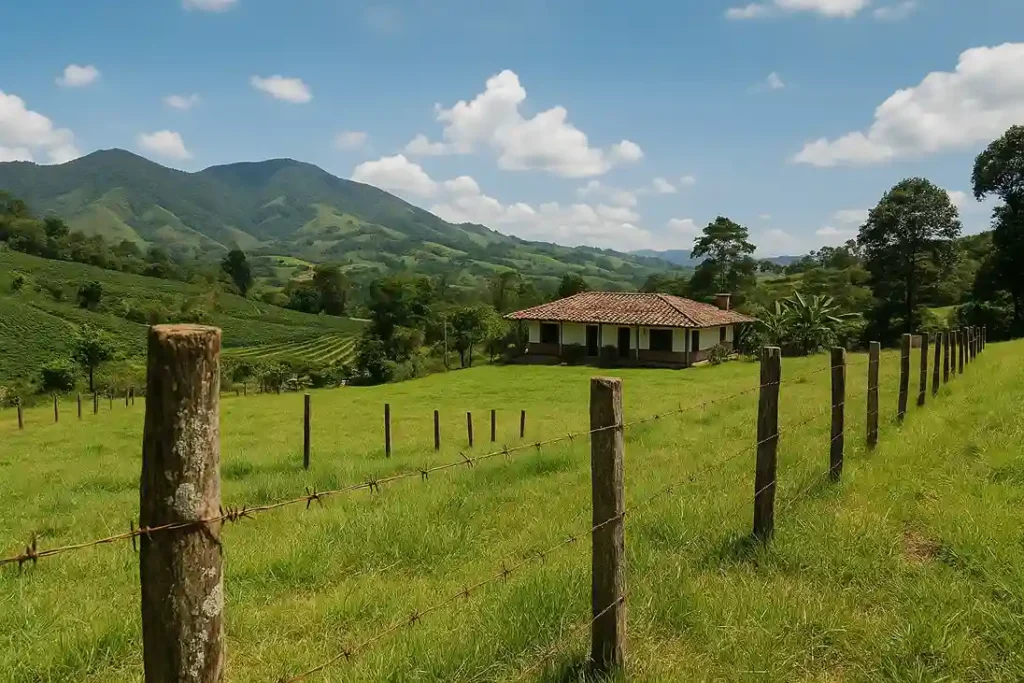
How Rural Limits Affect Your Investment
When buying land in Colombia, especially in rural zones, investors should be aware of several important factors that can impact both legal compliance and profitability:
- Zoning and Construction Restrictions: Rural zones have strict limits on commercial or residential construction to protect farmland and ecosystems.
- Agricultural Use Regulations: Many properties are classified as agricultural and must be used for farming or livestock to maintain ownership or tax benefits.
- Environmental Protection Zones: Land near rivers or forests may face restrictions from environmental agencies.
- Infrastructure and Access: Limited access to utilities and roads can increase development costs.
Failure to respect these boundaries or regulations can result in fines, halted construction, or even expropriation in severe cases. For this reason, it’s highly recommended to work with experienced legal professionals who can verify the zoning classification, environmental restrictions, and usage rights of your land before purchase.
How to Verify Rural Boundaries
When buying land in Colombia, confirming whether the property lies within rural or urban limits is a crucial part of the due diligence process. Understanding these boundaries helps you determine what can legally be built or developed on your land and prevents potential legal or environmental conflicts. Here are the key steps to verify rural boundaries before completing your purchase:
Consult Official Zoning Maps Visit the Oficina de Planeación Municipal or its website to review official zoning and land-use maps that show if the property is rural, suburban, or urban.
Seek Legal Guidance: Local regulations vary by municipality. The team at Colombia Law Connection can assist you in interpreting official zoning documents, confirming that your intended land use aligns with existing legal boundaries, and ensuring that your purchase fully complies with Colombian law.
Review Environmental Reports: Request information from regional environmental authorities (Corporaciones Autónomas Regionales) to verify if the land lies within a protected or restricted zone.
Considering Other Investment Opportunities? While this guide focuses on buying land in Colombia, many foreign investors are also exploring residential properties for personal use or rental income. Discover current market trends, average prices, and expert insights in our related article: How Much Is a House in Colombia? and Safest Places in Colombia.
Zoning Regulations: What You Need to Know
Zoning (ordenamiento territorial) defines how land can be used depending on its classification (residential, commercial, industrial, agricultural, or environmental). These regulations are established by local municipalities to ensure sustainable urban and rural development. When buying land in Colombia, understanding zoning classifications is fundamental to determining what you can legally build or operate on your property.
Main Zoning Classifications
When investing in land Colombia, it’s important to identify how the property is classified within the local zoning plan. The main categories include:
- Residential: Areas intended for the construction of housing projects, such as single-family homes, apartments, and residential complexes. Certain subcategories may specify maximum building heights or density limits.
- Commercial: Zones where business activities are permitted, including shops, offices, hotels, and tourism-related services. Purchasing property in a commercial zone can be advantageous for investors planning rental or business operations.
- Industrial/Agricultural : Areas designated for manufacturing plants, workshops, warehouses, or agricultural production. Before buying, it’s important to confirm whether the land allows for industrial activity or is restricted to agricultural use only.
- Protected/Environmental: Land under environmental conservation programs or ecological protection, where construction and land modification are often limited or prohibited. These areas are usually managed by regional environmental authorities and require special permits for any type of development.
Why Zoning Compliance Matters?
Complying with zoning regulations is essential when buying land in Colombia, as it ensures your investment remains legal and profitable. Ignoring these rules can lead to serious setbacks, including:
- Legal Penalties: Noncompliance can result in fines, suspension of construction, or even demolition orders.
- Investment Risks: Projects that conflict with permitted land use may be halted or denied approval, causing financial losses.
- Lower Property Value: Land that violates zoning laws can lose credibility in the market, making resale or development difficult.
Identifying the correct zoning classification before finalizing a purchase helps you make well-informed decisions and avoid legal or financial issues. Whether you plan to construct, cultivate, or develop on your property, understanding zoning laws ensures that every step of your project follows Colombia’s local and national regulations.
For many foreigners, buying land in Colombia is part of a broader goal of relocating to the country—either for business, lifestyle, or retirement. Before making that move, it’s essential to understand how property laws, visas, and residency requirements work together.If you’re considering starting a new life abroad, explore our detailed guide on the relocation process: Relocating to Colombia: Key Steps and Legal Advice.
Common Pitfalls When Buying Land in Colombia
Even with careful planning, foreign investors can encounter obstacles when buying land in Colombia. Being aware of these common mistakes can help you protect your investment and avoid legal complications.
1. Skipping the Title Search: Rushing into a purchase without verifying the property’s ownership history is one of the most frequent and costly errors. Failing to conduct a proper title search can expose you to unpaid taxes, ownership disputes, or hidden debts. Always work with a qualified attorney who can review the property’s legal background and confirm its legitimacy before signing any contract.
2. Misinterpreting Rural and Zoning Regulations: Many foreigners are unaware that rural areas in Colombia often have environmental protections or land-use restrictions that limit what can be built or developed. Misunderstanding these regulations can lead to construction bans or fines. Consulting local legal professionals ensures your plans comply with both municipal and national zoning laws.
3. Lacking Proper Legal Representation: Navigating property laws in a foreign country can be complex, especially when dealing with contracts, registries, and tax obligations. Attempting to handle the process independently can result in costly mistakes or incomplete documentation. If you need assistance, contact us.
By avoiding these pitfalls and relying on professional guidance, your experience buying land in Colombia will be secure, compliant, and stress-free.
Start Your Investment Journey with Expert Legal Guidance
Buying property in Colombia is an exciting opportunity that can yield strong long-term returns when approached with proper legal preparation. A secure investment requires verifying property ownership, understanding zoning and rural limits, and complying with Colombian regulations. At Colombia Law Connection, our bilingual legal team provides comprehensive assistance to ensure every step of your property purchase is safe, transparent, and compliant with national laws.

